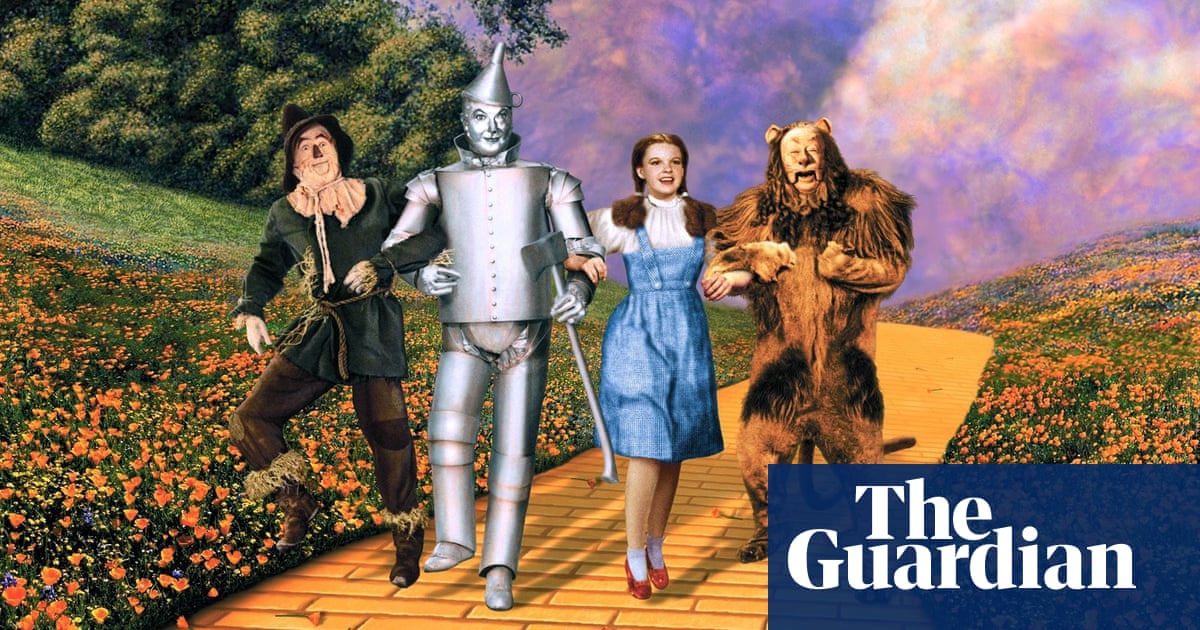10. The Shawshank Redemption (1994)
Budget: £19.3m. Worldwide gross: £22m
Still IMDb’s chart-topper as the best film of all time, this started small. It struggled to compete with Pulp Fiction and Forrest Gump on release, had limited female appeal as a male-bonding-in-prison yarn, and made punters wonder, according to star Tim Robbins: “What was that Shinkshonk Reduction thing?” A remarkable turnaround took place, buoyed up by seven Oscar nominations, and a whopping VHS push that made it the most rented title of 1995.
9. Willy Wonka and the Chocolate Factory (1971)
Budget: £2.3m. Worldwide gross: £3.2m
The star power of Gene Wilder wasn’t enough to get bums on seats for the Americanised Roald Dahl here, not helped by Dahl himself disowning it, finding the musical approach “sappy”, and maddened by the plot changes. It lapsed into obscurity for years until home video came along, and a stoner cult started building. With apologies to later incarnations Johnny Depp and Timothée Chalamet, this is the trippy welcome from a creepy Wonka that cinema always deserved.
8. Strange Days (1995)
Budget: £32.3m. Worldwide gross: £13.1m
Kathryn Bigelow has fielded way more flops (Blue Steel, K19: The Widowmaker, The Weight of Water, Detroit) than hits (Point Break); even The Hurt Locker underperformed. Her riskiest failure was this electrifying sci-fi noir about jacking into the cerebral cortex, with a cast more cool than commercially sure-fire (Ralph Fiennes, Angela Bassett, Juliette Lewis, Tom Sizemore). That 12 Monkeys hit the jackpot the same year proves what a difference Bruce Willis and Brad Pitt made.
7. The Thing (1982)
Budget: £12m. Worldwide gross: £15.9m
Not the only film on this list to come a cropper because of a homesick alien with a glowing finger, John Carpenter’s brilliantly paranoid sci-fi remake opened two weeks after ET, and four weeks after Poltergeist, meaning it stormed the US box office charts at a measly No 8. Critics were revolted by the wild grotesqueries of Rob Bottin’s VFX, but for all those reasons it’s a canonical favourite among genre aficionados now, inspiring numerous video games, spin-off comics, a crappy 2011 prequel, and all other sorts.
6. Donnie Darko (2001)
Budget: £3.5m. Initial US gross: £398,386
It would do better internationally, but after a poor reception at Sundance, Richard Kelly had huge problems finding a US distributor for his poignant, funny, stunningly downcast suburban puzzle piece. They were scared of such dark teen material after the Columbine school shootings, and the plane crash in the trailer made no one want to go when it opened after 9/11. Metrodome’s UK release a year later was a gamechanger, igniting the ardent cult it now has.
5. It’s a Wonderful Life (1946)
Budget: £2.45m. Worldwide gross (approx): £2.54m
Frank Capra was miserable about the original reception for what is now the most beloved Christmas film of all time. Despite five Oscar nominations, including best picture, it got curmudgeonly reviews and lost £400,000 for the studio RKO. Only in 1976, when the copyright lapsed, did it start becoming a yuletide TV staple and enshrined classic, much to Capra’s amazement. “It’s the damnedest thing I’ve ever seen,” he told the Wall Street Journal in 1984. “I’m like a parent whose kid grows up to be president.”
4. Blade Runner (1982)
Budget: £21.6m. Worldwide gross: £32.2m
Not the biggest flop among all these, but still a galling disappointment for Ridley Scott and Warner Bros, not least given the sensational design. The same weekend The Thing tanked, this came a distant second to ET, and sank fast: word-of-mouth, at first, was more bewildered than awestruck. When Scott was allowed to revisit it for his 1992 director’s cut, one of seven versions that now exist, interest flourished and its reputation soared.
3. Citizen Kane (1941)
Budget: £646,602. Recorded loss: £123,202
Hollywood wasn’t ready for Orson Welles: RKO was pilloried within the industry for granting this upstart total control of the final cut. He had to threaten a lawsuit to get the film released – promoted as a love story with the slogan “It’s Terrific!” – and couldn’t get any coverage in the Hearst press (William Randolph Hearst, on whom it was partly based, sent down an edict that the film shouldn’t even be mentioned). The gossip columnists Louella Parsons and Hedda Hopper urged a boycott of the film, and it was booed in all Oscar categories, winning only for the script. We have French critics in the 1950s to thank for declaring it a masterpiece.
2. The Wizard of Oz (1939)
Budget: £2.1m. Initial gross (approx): £2.3m
It was some while before MGM was off to see a profit from the wonderful Wizard of Oz – specifically, until it was reissued in 1949. Over the Rainbow was nearly cut pre-release, because executives felt the Kansas sequence was too long. It then won the best original song Oscar, and Judy Garland scooped a special award for juvenile achievement. The film became canonical only when broadcast repeatedly in the late 1950s, gaining Dorothy millions more friends.
1. Vertigo (1958)
Budget: £1.9m. North American gross: £2.5m
It just about broke even, but Hitchcock always set out to make hits (North by Northwest took £7.6m the next year). To be fair, this one is Vertigo: a bewitching but weird-as-hell spiral into romantic obsession, not a proto-Bond spy chase with clear villains. Hitch himself thought James Stewart looked too old (which may add pathos, but not marquee value). He was stung by the critical response, though, and withdrew it from circulation for many years. Only the likes of François Truffaut adored it until the 1980s, when it first cracked the top 10 in the Sight & Sound critics’ poll, eventually dislodging Kane from the top spot in 2012.

